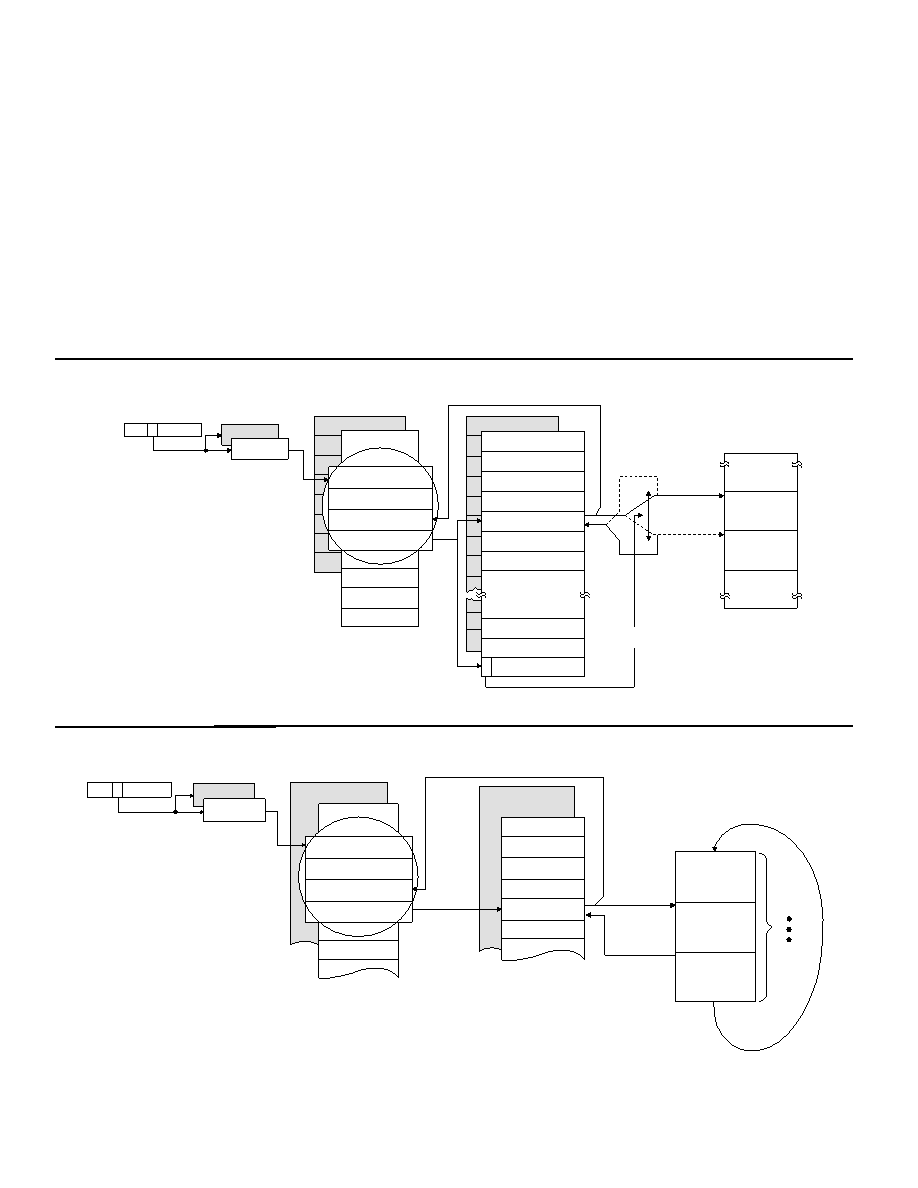- 您現(xiàn)在的位置:買賣IC網(wǎng) > PDF目錄166597 > BU-61865F3-720Z (DATA DEVICE CORP) 2 CHANNEL(S), 1M bps, MIL-STD-1553 CONTROLLER, CQFP72 PDF資料下載
參數(shù)資料
| 型號: | BU-61865F3-720Z |
| 廠商: | DATA DEVICE CORP |
| 元件分類: | 微控制器/微處理器 |
| 英文描述: | 2 CHANNEL(S), 1M bps, MIL-STD-1553 CONTROLLER, CQFP72 |
| 封裝: | 1 X 1 INCH, 0.155 INCH HEIGHT, CERAMIC, FP-72 |
| 文件頁數(shù): | 19/60頁 |
| 文件大小: | 700K |
| 代理商: | BU-61865F3-720Z |
第1頁第2頁第3頁第4頁第5頁第6頁第7頁第8頁第9頁第10頁第11頁第12頁第13頁第14頁第15頁第16頁第17頁第18頁當(dāng)前第19頁第20頁第21頁第22頁第23頁第24頁第25頁第26頁第27頁第28頁第29頁第30頁第31頁第32頁第33頁第34頁第35頁第36頁第37頁第38頁第39頁第40頁第41頁第42頁第43頁第44頁第45頁第46頁第47頁第48頁第49頁第50頁第51頁第52頁第53頁第54頁第55頁第56頁第57頁第58頁第59頁第60頁

26
Data Device Corporation
www.ddc-web.com
BU-6174X/6184X/6186X
Rev. C
FIGURE 7. RT DOUBLE BUFFERED MODE
15
13
0
BLOCK STATUS WORD
TIME TAG WORD
DATA BLOCK POINTER
RECEIVED COMMAND
WORD
CONFIGURATION
REGISTER
STACK
POINTERS
DESCRIPTOR
STACK
CURRENT
AREA B/A
DATA
BLOCKS
DATA
BLOCK 1
DATA
BLOCK 0
X..X 0 YYYYY
X..X 1 YYYYY
RECEIVE DOUBLE
BUFFER ENABLE
SUBADDRESS
CONTROL WORD
MSB
DATA BLOCK POINTER
LOOK-UP
TABLES
FIGURE 8. RT CIRCULAR BUFFERED MODE
CIRCULAR
BUFFER
ROLLOVER
15
13
0
RECEIVED
(TRANSMITTED)
MESSAGE
DATA
(NEXT LOCATION)
128,
256
8192
WORDS
POINTER TO
CURRENT
DATA BLOCK
POINTER TO
NEXT DATA
BLOCK
LOOK-UP TABLE
ENTRY
CIRCULAR
DATA
BUFFER
LOOK-UP TABLES
LOOK-UP
TABLE
ADDRESS
BLOCK STATUS WORD
TIME TAG WORD
DATA BLOCK POINTER
RECEIVED COMMAND
WORD
CONFIGURATION
REGISTER
STACK
POINTERS
DESCRIPTOR
STACK
CURRENT
AREA B/A
1. TX/RS/BCST_SA look-up table entry is updated following valid receive (broadcast) message
or following completion of transit message
Notes:
*
2. For the Global Circular Buffer Mode, the pointer is read from and re-written to Address 0101 (for Area A)
or Adress 0105 (for Area B).
ture provides an additional option, a variable sized global circu-
lar buffer. The Enhanced Mini-ACE RT allows for a mix of single
buffered, double buffered, and individually circular buffered sub-
addresses, along with the use of the global double buffer for any
arbitrary group of receive(/broadcast) or broadcast subaddress-
es.
In the global circular buffer mode, the data for multiple receive
subaddresses is stored in the same circular buffer data structure.
The size of the global circular buffer may be programmed for
128, 256, 512, 1024, 2048, 4096, or 8192 words, by means of
bits 11, 10, and 9 of Configuration Register #6. As shown in
TABLE 40, individual subaddresses may be mapped to the glob-
al circular buffer by means of their respective subaddress control
words.
The pointer to the Global Circular Buffer will be stored in location
0101 (for Area A), or location 0105 (for Area B).
The global circular buffer option provides a highly efficient
method for storing received message data. It allows for frequent-
ly used subaddresses to be mapped to individual data blocks,
while also providing a method for asynchronously received mes-
sages to infrequently used subaddresses to be logged to a com-
mon area. Alternatively, the global circular buffer provides an
efficient means for storing the received data words for all subad-
dresses. Under this method, all received data words are stored
chronologically, regardless of subaddress.
相關(guān)PDF資料 |
PDF描述 |
|---|---|
| BU-61865F3-790Q | 2 CHANNEL(S), 1M bps, MIL-STD-1553 CONTROLLER, CQFP72 |
| BU-61865F3-792K | 2 CHANNEL(S), 1M bps, MIL-STD-1553 CONTROLLER, CQFP72 |
| BU-61865F3-882S | 2 CHANNEL(S), 1M bps, MIL-STD-1553 CONTROLLER, CQFP72 |
| BU-61865F4-560K | 2 CHANNEL(S), 1M bps, MIL-STD-1553 CONTROLLER, CQFP72 |
| BU-61865F4-650S | 2 CHANNEL(S), 1M bps, MIL-STD-1553 CONTROLLER, CQFP72 |
相關(guān)代理商/技術(shù)參數(shù) |
參數(shù)描述 |
|---|---|
| BU-61865F4-100 | 制造商:未知廠家 制造商全稱:未知廠家 功能描述:Telecommunication IC |
| BU-61865F4-110 | 制造商:未知廠家 制造商全稱:未知廠家 功能描述:Telecommunication IC |
| BU-61865G3-100 | 制造商:未知廠家 制造商全稱:未知廠家 功能描述:Telecommunication IC |
| BU-61865G3-110 | 制造商:未知廠家 制造商全稱:未知廠家 功能描述:Telecommunication IC |
| BU-61865G4-100 | 制造商:未知廠家 制造商全稱:未知廠家 功能描述:Telecommunication IC |
發(fā)布緊急采購,3分鐘左右您將得到回復(fù)。